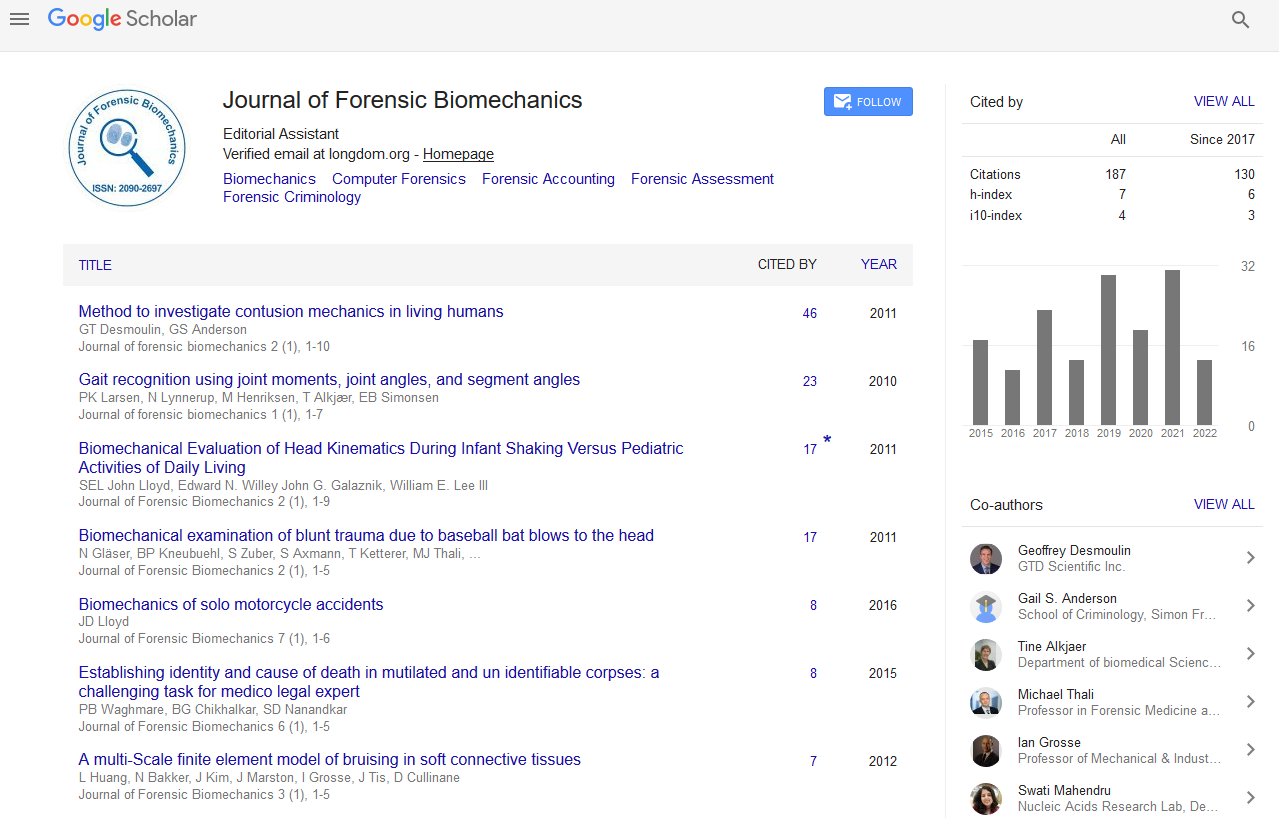Indexed In
- Genamics JournalSeek
- SafetyLit
- Ulrich's Periodicals Directory
- RefSeek
- Hamdard University
- EBSCO A-Z
- Geneva Foundation for Medical Education and Research
- Euro Pub
- Google Scholar
Useful Links
Share This Page
Journal Flyer

Open Access Journals
- Agri and Aquaculture
- Biochemistry
- Bioinformatics & Systems Biology
- Business & Management
- Chemistry
- Clinical Sciences
- Engineering
- Food & Nutrition
- General Science
- Genetics & Molecular Biology
- Immunology & Microbiology
- Medical Sciences
- Neuroscience & Psychology
- Nursing & Health Care
- Pharmaceutical Sciences
Abstract
A Survey of the Imaginary Companion Experience in Adults with Intellectual Disabilities.
Lino Faccini.
The imaginary companion phenomena has been well studied in children and adolescents but less so in adults. A comprehensive review of the research suggested that adults with Down Syndrome have a higher prevalence of adults having imaginary companions than nonintellectually disabled populations. The present study examined the prevalence and characteristics of the imaginary companion experience in adults with intellectual disabilities via surveying their treating psychologists. Out of 1914 adults with intellectual disabilities, only seven individuals were identified with imaginary companions in adulthood. Nearly, all of the characteristics of the imaginary companion in this population resembled those in a nonintellectually disabled population, including influencing the person to commit acts of violence. The main difference between the populations involved the adults with intellectual disabilities keeping their imaginary companions for a majority of their lives. However, a strategy developed for banishing imaginary companions for a nonintellectually disabled population has also worked in a case study with an adult with intellectual disabilities.

